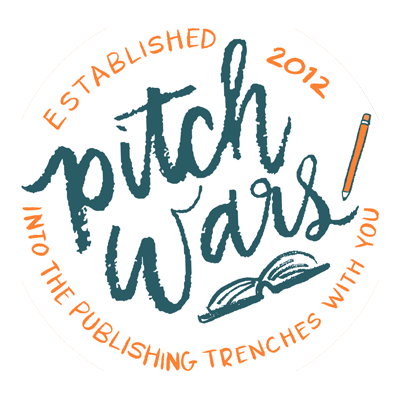

How to Prepare for Pitch Wars
Q: What is Pitch Wars?
A: It’s a short-term (about 3 months) mentorship program for writers of Middle-grade, YA, and adult fiction. It only opens for a brief period in the early fall. This year, it opens for submissions 9/26/21 and closes 9/30/21. If you are accepted, a mentor-writer will work with you for the 3 months leading up to an Agent Showcase, where you can have your work seen by agents actively looking for manuscripts.

Want to Write More? Walk More!
Today I took a long walk in one of my favorite local places, Breakheart Reservation in Saugus. It has two small lakes, and miles of trails - paved loops that are easy for fast walks, and lots of wooded trails along the river and over the ridge, and around the lakes. I still haven’t explored them all.


Distraction or Discipline: Which Do You Choose?
I follow Brendon Burchard on Instagram and Twitter (@BrendonBurchard). He’s a coach in the inspirational/productivity space and he gives good doses of loving but firm advice. A couple of his recent quotes struck me in particular, since they hit hard at a daily struggle I and many writers and creators go through:

What to Do When It’s Too Hot to Write
Lately we’ve had a respite from the heat here on the East Coast – but the Southwest is still baking, as are other parts of the country. And I’m sure we will have plenty of days ahead when it’s so hot my brain feels like it’s melting and my will to do anything evaporates and I flop on the couch like a fish on dry land (although with our humidity, it will feel anything but dry).
During these “dog days” of summer, it can be hard to find any writing motivation, and even well-established routines are hard to maintain. Sometimes summer is a great time to get big chunks of writing done, but sometimes it becomes even harder to squeeze it in around vacations and upended schedules.

I Failed at My Last Writing Retreat
This holiday weekend, I had big plans for my writing. I was going to do a writing retreat, with the goal of adding 10,000 words to my manuscript in progress. Not that daunting, really, since I had 4 days to make it happen: 2500 words a day. More than I’m used to, but not by an outrageous amount.

Book Coaching FAQ: What is a Book Coach and What Can One Do for You?
Since I’ve done quite a few book recommendations this month, I’m going to hold off on my usual monthly book roundup, and maybe post it next week or later in the summer.
Instead, I want to delve into the questions I’m often asked about book coaching, such as: What is a book coach, anyway? What does a book coach do? How is that different from an editor? And more. Read on for the answers.

Three Paradoxes of the Writer’s Life
Lately it’s hit me that the writing life is all about paradoxes. For every truth, there is an opposite. Keeping it all in balance is something we don’t always consciously strive for. Instead, like a see-saw, we swing one way and then the other. Except usually it isn’t fun, it’s exhausting. There are three in particular that I and many writers I know struggle with:

The Cure for Writer’s Block
The writing isn’t the problem.
It’s you.
Writers love to complain about writer’s block, and even look askance at anyone who claims not to have it. They must be a hack, surely, if writing comes so easily to them? If it’s not like squeezing blood from a stone, is it even writing?

10 Failures of Mindset That Will Keep You from Writing
This month, I’m going to be focusing on various aspects of what I call Mindset Coaching for Writers. There are many aspects to a writer’s mindset, such as developing persistence, dealing with blocks, plus the paradoxes of both staying in “beginner’s mind” while also developing mastery of your craft, among others.

Resources for Writing the “Other”
With May being AAPI Heritage Month (and this Friday’s World Day for Cultural Diversity) it’s a good opportunity to bring up a real challenge for writers – writing the Other. “Other” can be anyone whose identity you don’t share, whether through gender, sexual orientation, ethnicity, race, age, disability, etc. Writers have come under much more scrutiny these last few years in their attempts to create a diverse cast of characters in their work, and with good reason: while representation is important, equally important is accurate representation that avoids stereotypes. This is especially true for marginalized populations who historically have not only been under-represented but misrepresented in many ways.

Can You Ever Have Too Much Voice?
Last week I talked about the novel Sunshine, by Robin McKinley. I liked the story, but found the rambling, digressing, and occasionally convoluted nature of the writing distracting to the point where I occasionally skipped passages – which I almost never do. Why? Aren’t we told, over and over again, that we must have “voice” in our writing? What is “voice” anyway, and can you have too much of it?

Give It a Whirl: Writing Exercises for National Poetry Month
Last week we talked about poetry techniques for fiction or nonfiction. How about writing some actual poetry? For some prose writers, that’s a hell, no! I get it. It’s a totally different form. But you can write in any form of poetry you like! Prose poetry is a thing. So is free verse. If you want to, you can look at all kinds of forms of poetry and their rules for a special challenge.

What Fiction Writers Can Learn from Poetry
It’s National Poetry Month! I often feel like poetry is seen as “literary” and cut off from the popular imagination. Robert Pinsky’s The Favorite Poem Project and NPR’s recent invitation to submit poems via Twitter and TikTok help bring poetry back to the everyday. Fiction and nonfiction get far more attention from the media and the public, of course, and often people, even writers, fall firmly in the prose or poetry camps.
However, there is a lot prose writers can learn from poetry. Especially if you’re feeling like your writing is a little stale, you can learn to play with words again by paying attention to some of the techniques poets use.

Took a Break From Writing? Here’s How to Come Back Strong
This past weekend I went on a long-weekend trip to see family for Easter. Like many other people, I haven’t been able to see my extended family regularly for a while, so it was kind of a big deal. While there, I did lots of other things, but one thing I didn’t do was writing.

Researching Agents and Setting Up Your Querying System
Now that you have your query and your various synopses ready to go, the next step is to actually send your stuff out to a real live agent, standing by.
Actually, no, agents are not standing by just waiting for queries to drop in like manna from heaven. That is a real misconception writers have.

The Dreaded Synopsis
Writing a novel synopsis is hard, but it can help you before and after the pitching process. Here's a breakdown of how to do it right.

How to Write a Kick-Ass Query Letter
Querying a book is both a lot simpler and a lot harder than it may appear. Simple, because there are very specific things you need to include, and there is a very simple outline you can follow to make sure those elements are present. Hard, because holy cow – creating a compelling short synopsis of your book in one or two paragraphs is a major challenge!

#PitMad? No Problem! The Ultimate Guide to Creating the Perfect Pitch
Now that most agents have re-opened to queries, and #PitMad is in full swing, it’s time to talk about the right way to prepare your pitch to sell your book. In this March series, I’ll be focused on selling your novel or memoir, because selling other kinds of nonfiction requires a different process. However, in terms of selling your book, memoir works more like fiction, so we can treat them together.
